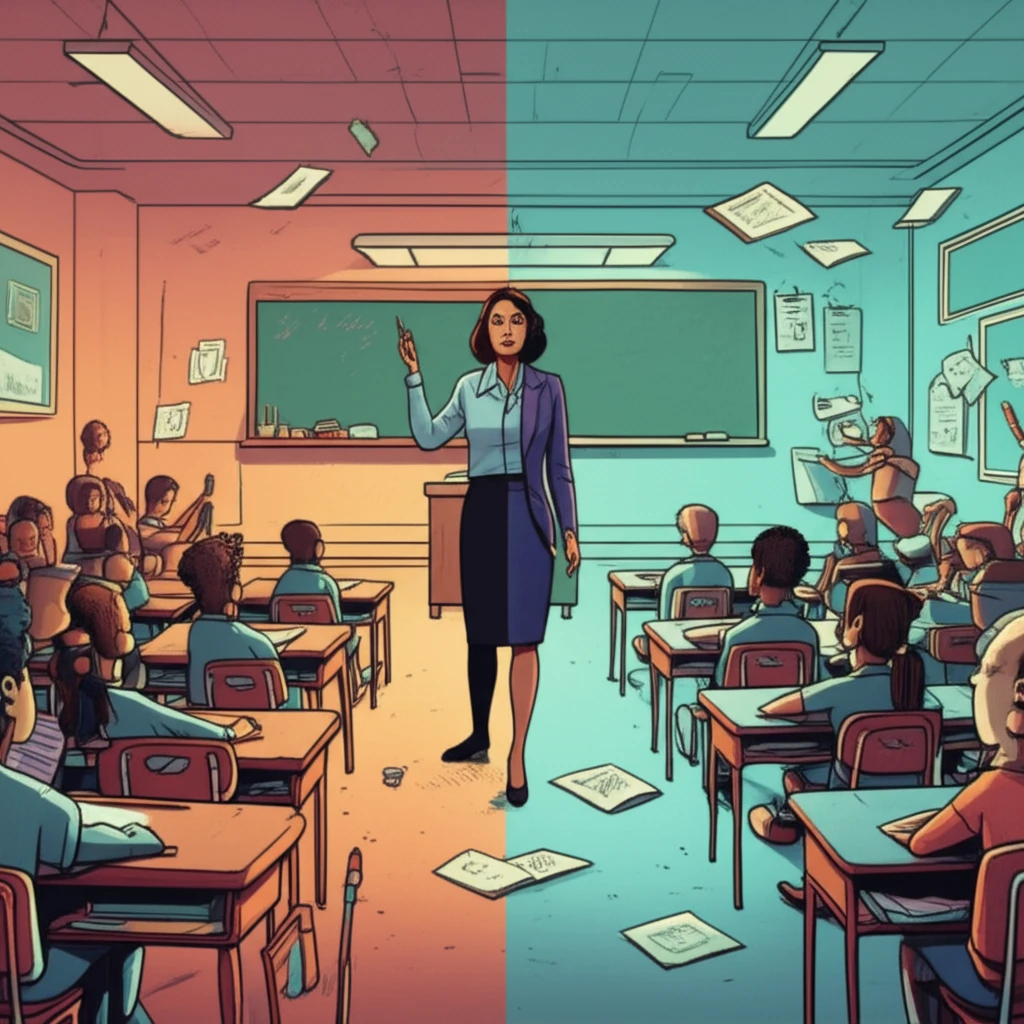
Unraveling Classroom Conflict: How Practitioner-Led Research Can Transform School Culture
"Dive into the world of practitioner-research and discover how one teacher's inquiry into classroom violence led to surprising insights and a more harmonious learning environment."
Classroom conflict can be a persistent challenge for educators. While many factors contribute to these disruptions, understanding the underlying dynamics is crucial for creating a positive and productive learning environment. Traditional approaches often focus on individual behavior, but what if the key to unlocking solutions lies in examining the broader institutional context?
Claire de Saint Martin, a specialized teacher in France, embarked on a journey to explore this question. Working with children with mental disabilities in a specialized elementary school class, she experienced firsthand the challenges of classroom violence. Driven by a desire to understand the root causes, she became a 'practitioner-researcher,' investigating the issue from both an academic and practical perspective.
Saint Martin's research, rooted in institutional analysis, offers valuable insights into the complex interplay between individual actions and institutional forces. Her work highlights how a teacher's dual role as practitioner and researcher can lead to transformative changes in school culture.
The Practitioner-Researcher: A Unique Perspective on Classroom Dynamics

Saint Martin's study leverages the theoretical framework of institutional analysis, pioneered by René Lourau. This approach emphasizes that individuals are shaped by the institutions they interact with, and vice versa. By examining the 'implications' – the relationships between individuals and institutions – Saint Martin sought to understand the dynamics of violence within her classroom.
- Navigating the Dual Role: Saint Martin acknowledges the potential for her 'expert' practitioner perspective to overshadow her 'novice' researcher stance. To mitigate this, she conducted her research in a CLIS (Classe pour l'Inclusion Scolaire) different from her own, allowing her to observe with a degree of detachment.
- Data Collection: Over thirteen half-days, Saint Martin meticulously recorded instances of conflict in the observed CLIS, adopting the role of a non-intrusive researcher. She also conducted interviews with students and teachers to gather diverse perspectives on classroom dynamics.
- Ethical Considerations: Saint Martin prioritized ethical considerations, ensuring that her research did not disrupt the learning environment or compromise the well-being of the students. She openly communicated her role as a researcher and avoided using the term 'violence' to prevent alarming the students.
Transforming Practice Through Research: A Path Towards Positive Change
Saint Martin's research underscores the transformative potential of practitioner-led inquiry. By combining her practical experience with rigorous research methods, she gained a deeper understanding of classroom conflict and its underlying causes. This understanding, in turn, led to positive changes in her own classroom and a more harmonious learning environment for her students.
One key takeaway from Saint Martin's work is the importance of considering the institutional context when addressing classroom violence. Rather than solely focusing on individual behaviors, educators should examine the broader school culture, policies, and practices that may contribute to conflict.
Saint Martin's experience highlights the power of teachers to become agents of change in their own schools. By embracing the role of practitioner-researcher, educators can gain valuable insights into the challenges they face and develop innovative solutions that promote a more positive and equitable learning environment for all students.
